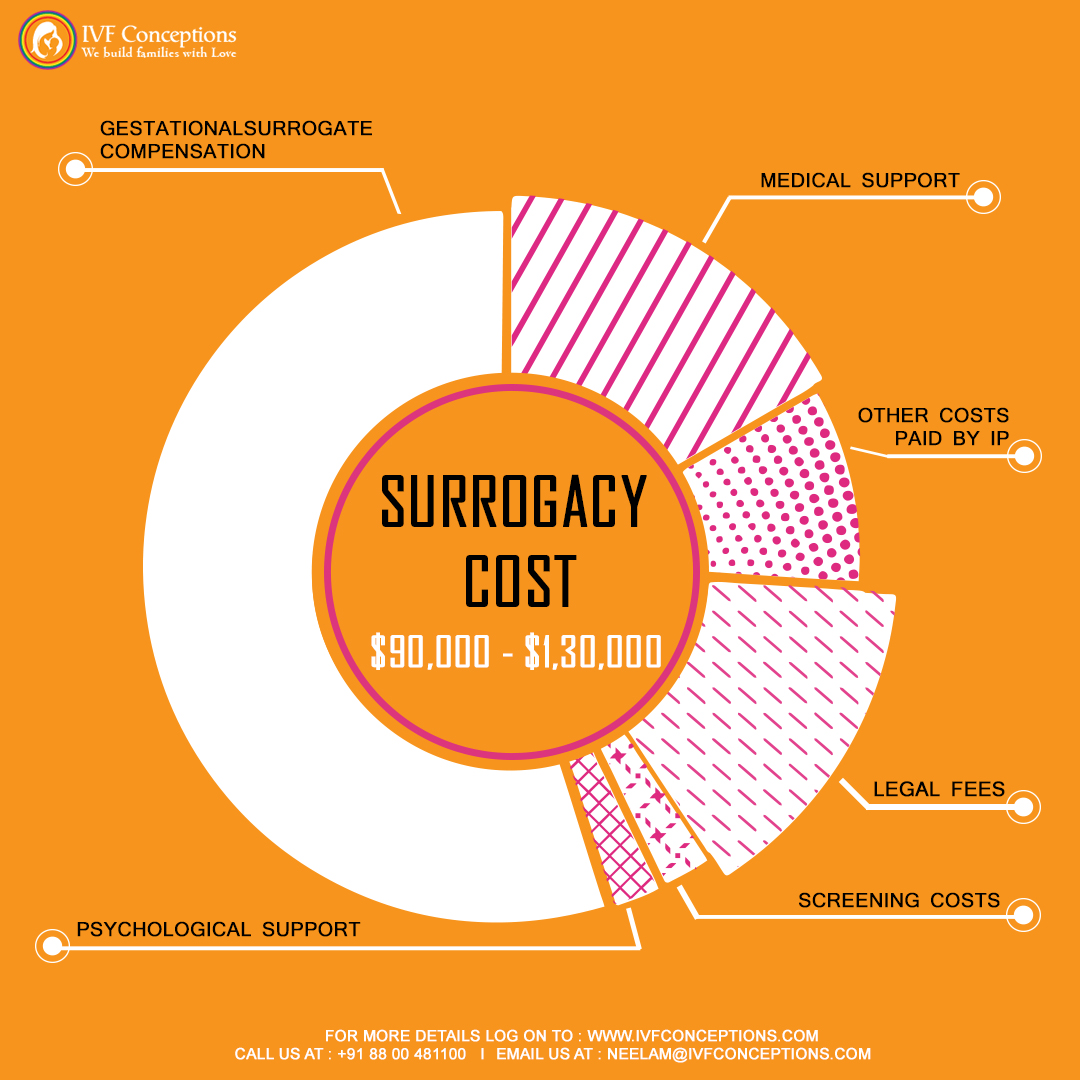Surrogacy in Greece: A Comprehensive Guide to Building Families
Greece is a beacon of hope for many aspiring parents. It offers legal clarity, medical excellence, and cultural richness in surrogacy. This guide will help those considering this journey.
Surrogacy in Greece is more than a medical process. It’s a regulated process that balances the needs of all involved. Greece is a top choice for international surrogacy due to its legal framework and medical facilities.
- Book an online appointment: Get a free online consultation.
- Call\W:+91-8800481100 Email:neelam@ivfconceptions.com
Key Takeaways for Surrogacy in Greece
Here are the main points about surrogacy in Greece:
- Surrogacy is legal and altruistic in Greece
- Eligible parties include couples and single women with fertility issues
- LGBT couples and single men are currently not eligible
- Court approval is mandatory before embryo transfer
- The legal framework is governed by the Greek Civil Code and Assisted Reproduction Act
- Commercial surrogacy is prohibited, but reasonable expenses are covered
- Average cost ranges from €75,000 to €90,000 ($80,000 to $96,000)
- Greece offers high-quality medical services and a favorable legal climate for international intended parents
More Resources to Read:
Affordable Surrogacy Services in India: The Definitive Guide for Intended Parents
Top 5 Things To Know Before Going For Surrogacy Process
Affordable Surrogacy Options: What You Need to Know about Global Surrogacy Options
When to Choose Surrogacy Process: Intended Parents Guide
Legal Framework of Surrogacy in Greece
Overview of Greek Surrogacy Laws
Greece’s legal framework prioritizes the well-being of all parties. The Greek Civil Code and the Assisted Reproduction Act were amended in 2002 and 2005. They allow and regulate surrogacy.
Key aspects of the legal framework include:
- Altruistic Nature: Only altruistic surrogacy is permitted, prohibiting commercial arrangements.
- Court Approval: A court order is required before the embryo transfer can take place.
- Gestational Surrogacy: Only gestational surrogacy is allowed, where the surrogate is not genetically related to the child.
- Compensation Limits: While commercial surrogacy is prohibited, surrogates can be compensated for reasonable expenses, including medical costs, lost wages, and unpaid leave during pregnancy.
Eligibility Criteria for Intended Parents to do surrogacy in Greece
Greece has specific eligibility criteria for intended parents:
| Criteria | Details |
| Relationship Status | Heterosexual couples (married or unmarried) and single women |
| Age Limit | Female intended parent must be under 50 years old |
| Medical Requirement | Proof of inability to conceive or carry a child |
| Citizenship | No Greek citizenship required (since July 2014) |
| LGBT Couples | Not currently eligible |
| Single Men | Not currently eligible |
Legal Process and Court Approval to do surrogacy in Greece
The legal process for surrogacy in Greece involves several key steps:
- Documentation: Intended parents must gather necessary documents, including medical certificates, birth certificates, and marital status proof.
- Legal Representation: Engage a Greek lawyer specializing in surrogacy law.
- Court Application: Submit an application to the court for surrogacy approval.
- Hearing: A court hearing is held to review the application and supporting documents.
- Court Decision: If approved, the court issues a decision allowing the surrogacy to proceed.
- Pre-Birth Order: The court decision acts as a pre-birth order, establishing the intended parents‘ legal rights.
The court process typically takes 3-4 months, and in many cases, the intended parents are not required to be present for the hearing.

Medical Aspects of Surrogacy in Greece
- IVF Process and Success Rates
Greece is home to some of Europe’s top fertility clinics. They offer advanced IVF treatments. The surrogacy process includes several medical steps:
- Ovarian Stimulation: For the intended mother or egg donor
- Egg Retrieval: Collection of mature eggs
- Fertilization: Creation of embryos using IVF or ICSI techniques
- Embryo Culture: Monitoring embryo development
- Embryo Transfer: Placing the embryo in the surrogate’s uterus
Success rates for surrogacy in Greece are high. Many clinics report pregnancy rates of 60-70% per embryo transfer for surrogacy cycles.
- Surrogate and Egg Donor Screening
Surrogates and egg donors undergo rigorous screening. This ensures their health and suitability:
| Screening Type | Tests Included |
| Medical | Physical examination, blood tests, gynecological check-up |
| Genetic | Karyotype analysis, genetic carrier screening |
| Psychological | Mental health assessment, counseling |
| Background | Criminal record check, lifestyle assessment |
Healthcare Quality in Greece
Greece’s healthcare system is highly ranked globally. According to the World Health Organization, it ranks 14th out of 191 countries. This shows its commitment to quality medical care.

The Surrogacy Process in Greece: Step by Step
- Initial Consultation: Meet with a surrogacy agency or clinic to discuss your options and requirements.
- Legal Preparation: Engage a Greek lawyer to handle legal aspects and court application.
- Surrogate Matching: The agency or clinic will help match you with a suitable surrogate.
- Medical Screening: Both intended parents and surrogate undergo medical evaluations.
- Court Approval: Obtain the necessary court order allowing the surrogacy to proceed.
- IVF Treatment: Begin the medical process of creating and transferring embryos.
- Pregnancy and Monitoring: Regular check-ups and updates throughout the pregnancy.
- Birth and Legal Formalities: The child is born, and legal parenthood is established.
- Return Home: Complete necessary paperwork for the child’s citizenship and travel documents.
Cost of Surrogacy in Greece
The surrogacy cost in Greece varies from $60,000 to $90,000. Surrogacy in Greece is more affordable than in many Western countries, however, when you compare it with the other east European countries like Georgia and Ukraine, it is costly process. It still offers high-quality care.
Here’s a breakdown of typical expenses:
Costs and Benefits of Surrogacy in Greece
Surrogacy in Greece is a popular choice for many. It offers both benefits and challenges. Let’s look at the costs and what makes it appealing.
Estimated Costs of Surrogacy in Greece
The total cost for surrogacy in Greece is around €75,000 to €90,000. This includes:
| Expense Category | Estimated Cost (€) |
| Agency Fees | 15,000 – 20,000 |
| Legal Fees | 5,000 – 7,000 |
| IVF Treatment | 5,000 – 8,000 |
| Surrogate Compensation | 12,000 – 15,000 |
| Medical Expenses | 10,000 – 15,000 |
| Miscellaneous (travel, accommodation, etc.) | 5,000 – 10,000 |
| Total Estimated Cost | 75,000 – 90,000 |
]Keep in mind, these are just averages. Actual costs can vary. This depends on your situation and the clinic or agency you choose.

Benefits of Choosing Surrogacy in Greece
Choosing Greece for surrogacy has many perks:
- Legal Clarity: Greece has a clear legal setup with pre-birth orders.
- High-Quality Healthcare: Top-notch medical care and professionals.
- Cost-Effective: It’s more affordable than many Western countries.
- No Waiting List: Shorter waiting times for matching with a surrogate.
- Beautiful Location: Enjoy your journey in a stunning Mediterranean country.
- Ethical Practices: Strict rules ensure surrogates are treated ethically.
- International Friendly: Open to international parents since 2014.
Challenges and Considerations
While Greece offers many benefits, there are challenges too:
- Language Barrier: Some professionals might not speak English well, so translation services are needed.
- Travel Requirements: You might need to travel to Greece several times.
- Cultural Differences: It’s important to understand Greek customs and medical practices.
- Legal Complexities: You’ll need to navigate both Greek law and your home country’s rules.
- Limited Eligibility: Surrogacy in Greece isn’t open to LGBT couples or single men.
Choosing a Surrogacy Agency in Greece
Finding the right agency is key for a successful journey. Here are things to consider:
- Experience: Choose agencies with a good track record in international surrogacy.
- Comprehensive Services: Look for agencies that offer full-service packages, including legal and medical coordination.
- Transparency: Make sure they communicate clearly about costs, processes, and potential challenges.
- Ethical Practices: Check their commitment to ethical treatment of surrogates.
- Support Services: Ensure they offer counseling, translation, and post-birth assistance.
International Surrogacy and Greek Law
Greece has become a popular choice for international surrogacy since 2014. It’s important to understand how its law interacts with your home country’s rules.
Key points for international parents:
- Citizenship: Make sure your home country will recognize the child’s parentage and grant citizenship.
- Travel Documents: Understand how to get a passport or travel documents for the child.
- Legal Recognition: Check if your home country recognizes Greek pre-birth orders.
- Apostille: The child’s birth certificate might need to be apostilled for international recognition.
Future of Surrogacy in Greece
Greece is becoming a top choice for surrogacy, with some key trends and changes to watch:
- Potential Expansion of Eligibility: There’s talk about letting LGBT couples and single men have surrogacy rights.
- Technological Advancements: Greek clinics lead in using new IVF technologies.
- Increased International Demand: As more people learn about it, wait times might get longer.
- Regulatory Refinements: Laws might change to tackle new challenges.
Additional Resources to Read:
Can a Surrogate Mother Keep the Baby? Everything You Need to Know
Understanding Gay Surrogacy Costs – A Guide
How Much Do Surrogates Make – A Comprehensive Guide
Conclusion
Surrogacy in Greece offers legal clarity, medical excellence, and cultural richness. It’s a hope for many on their journey to parenthood. While there are challenges, the benefits of choosing Greece are big.
Thinking about surrogacy? It’s complex and needs careful thought and planning. Talk to experts, connect with others, and learn all about surrogacy in Greece.
Greece is committed to ethical practices, quality healthcare, and a supportive legal framework. For many, it makes building a family a reality in this ancient land.
If you’d like to learn more about IVF, Egg Donation, or surrogacy services globally, check out the rest of our website at Georgia Surrogacy Agency. We offer legally secure and affordable surrogacy consulting services for FREE.
Get in touch for FREE SURROGACY CONSULTING:
Mobile: +91-8800481100 ( WhatsApp, Line, Viber)
Email: neelam@ivfconceptions.com

Frequently Asked Questions (FAQs) about Surrogacy in Greece
- Is surrogacy legal in Greece?
Yes, it’s legal in Greece, thanks to the Greek Civil Code and the Assisted Reproduction Act.
- Who is eligible for surrogacy in Greece?
Eligible are:
- Heterosexual couples (married or unmarried)
- Single women with medical proof of infertility.
- Can same-sex couples or single men pursue surrogacy in Greece?
Not yet, Greek law doesn’t allow it. Only heterosexual couples and single women can.
- How much does surrogacy cost in Greece?
It costs between €75,000 to €90,000 ($80,000 to $96,000). This covers medical, legal, surrogate, and agency fees.
- Is commercial surrogacy allowed in Greece?
No, only altruistic surrogacy is allowed. Surrogates can get paid for expenses, not for being a surrogate.
- Do I need to be a Greek citizen to pursue surrogacy in Greece?
No, you don’t need to be Greek. Since 2014, international parents can pursue surrogacy here.
- How long does the surrogacy process take in Greece?
It takes 18-24 months, including 3-4 months for legal procedures and court approval.
- What is the success rate of surrogacy in Greece?
Success rates vary, but clinics report a 60-70% pregnancy rate per embryo transfer.
- How are surrogates screened in Greece?
They go through detailed screening, including medical checks, genetic tests, and background checks.
- Can I choose my own surrogate in Greece?
Usually, agencies or clinics match you with a surrogate. Choosing one yourself is rare.
- Is egg donation anonymous in Greece?
Yes, it’s anonymous by law. You can’t choose a donor but can pick characteristics.
- What legal documents will I need for surrogacy in Greece?
- Medical certificates proving inability to carry a pregnancy
- Birth certificates of intended parents
- Marriage certificate (if applicable)
- Passports or ID cards
- Surrogacy agreement
- Do I need to be present in Greece throughout the surrogacy process?
No, you don’t have to be there all the time. But, you’ll need to visit Greece for some important steps, like legal procedures and the birth.
- How is parentage established in Greek surrogacy arrangements?
Greece has a special court order before the baby is born. This order makes the intended parents the legal parents of the child.
- What are the age limits for intended parents in Greek surrogacy?
The intended mother (or single woman) must be under 50 when they apply to the court for surrogacy approval.
- Can I use my own eggs/sperm in surrogacy in Greece?
Yes, you can use your own gametes if they’re healthy. If not, you can use donor eggs or sperm.
- How long do I need to stay in Greece after the birth?
After the baby is born, you’ll need to stay in Greece for 2-3 weeks. This is to finish the paperwork and get the baby’s travel documents.
- Will my child be eligible for Greek citizenship?
Children born through surrogacy in Greece might not get Greek citizenship right away. Their citizenship usually depends on their parents’ nationality.
- How do I choose a surrogacy agency or clinic in Greece?
Choose agencies or clinics with:
- Experience in international surrogacy
- Full services (medical, legal, logistical)
- Good reviews and testimonials
- Clear communication and honesty
- Respect for ethics and support for surrogates
- What support is available for international intended parents?
Greek surrogacy agencies often offer a lot of help, including:
- Translation services
- Help with travel and accommodation
- Legal advice for both Greece and your home country
- Working with Greek doctors
- Emotional support and counseling

Highly esteemed, authoritative, and trusted professional with a 14-year of experience in international surrogacy. Advocate for Secure, Legal, and Affordable International Surrogacy.
Neelam Chhagani, MA (Counselling Psychology) and Holistic Infertility and Third-Party Reproduction Consultant.
Member of European Fertility Society, Best Surrogacy Blogger of 2020, with 300 dedicated blogs, and top contributor on Quora for Surrogacy.


Add Your Comment